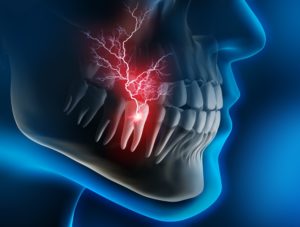 Many people believe an occasional toothache is normal; however, it’s never a good sign. It can indicate there’s a serious problem brewing in your mouth. In most situations, you’ll want to head to your dentist right away. Depending on the source of your discomfort, you may be at risk of losing your tooth.
Many people believe an occasional toothache is normal; however, it’s never a good sign. It can indicate there’s a serious problem brewing in your mouth. In most situations, you’ll want to head to your dentist right away. Depending on the source of your discomfort, you may be at risk of losing your tooth.
Is a Toothache a Dental Emergency?
No one ever expects a dental emergency to happen to them, but 1 in 6 Americans has one annually. Although they can take many forms, many people end up at an emergency dentist due to toothaches.
It’s tempting to wait for a few days to see if the pain subsides, but it’s not likely to go away on its own. Not to mention, you might lose your tooth if you don’t act fast. While every situation differs, here are common causes of dental pain and what you should do to save your smile:
- Tooth Decay: Tooth sensitivity or pain when biting can result from a cavity. If you wait too long to see a dentist, the decay will extend deeper into your tooth until an infection occurs. It is best to see your dentist at their next availability to avoid a root canal later.
- Infection: An infection deep within your tooth causes significant pain, but your dentist can treat it with root canal therapy. If you don’t get treatment right away, your tooth may need to be removed.
- Failing Restoration: A failing filling or crown can cause sensitivity and pain, which can be a sign of new decay. Without quick care, your restoration can fall off or an infection can occur.
- Break or Fracture: Even small breaks and fractures can cause discomfort while leaving you at risk of additional damage, infection, or tooth loss. Contact your dentist to have your tooth repaired before it is too late.
Managing Toothaches at Home
Is a toothache a dental emergency? In most situations, yes. If you’re unsure if you need immediate care, contact your dentist for instructions. While you wait for your appointment, here are a few tips to manage your discomfort:
- Take an over-the-counter pain reliever.
- Apply a cold compress to the outside of your face to numb the area temporarily.
- Avoid chewing with your tooth until after it has been treated.
- Stick to softer foods.
- Gargle with salt water to reduce pain and inflammation while killing harmful bacteria.
- Follow your oral hygiene routine.
No one has time for an unplanned visit to the dentist, but don’t ignore any dental pain. Your dentist will get you into the office quickly to stop your discomfort and rehabilitate your tooth so you can get back to your day.
About Dr. James Candon
Dr. Candon earned his dental degree from the University of Maryland School of Dentistry. He regularly continues his training to provide personalized services for every situation, including dental emergencies. If you have a toothache, don’t wait. Contact our office today to schedule an appointment.
